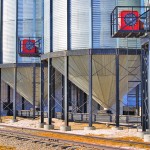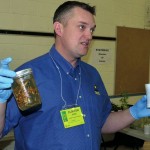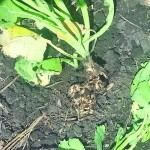
Tag Archives Canola Council of Canada

Severe clubroot case in northern North Dakota gets Manitoba’s attention
This province has clubroot but there could be undetected fields with high spore levels farmers should be looking out for

Canola and bees
RecipeSwap: Muesli Muffins with Almonds and Cranberries, Avocado Honey Veggie Wraps, and a Powerhouse Green Smoothie

Stored canola at risk for moisture damage and heating
Equalize the storage temperature with outside conditions to avoid moisture from condensation
Change is constant

Clubroot not so scary anymore, says CCC agronomist
Better scouting and earlier detection are key to avoiding an ugly, Alberta-style epidemic in Manitoba

Canola nutritionist honoured

New Canadian canola production target: 26 million tonnes by 2015
The Canola Council of Canada says almost all of the new production will come from increased yields, not more acres
After hitting its production target of 15 million tonnes average canola two years early, the Canola Council of Canada has a new one — 26 million tonnes by 2025. It says it will be achieved not by planting more acres, but through higher yields averaging 52 bushels an acre, instead of the current five-year averageAgriculture Hall of Fame
Charles John Froebe was a significant force behind the development of cash advance programs
There were six Manitoban’s inducted to the Manitoba Agricultural Hall of Fame July 10. The Co-operator will publish the inductee profiles over the next six weeks.
Charlie Froebe was born at Carman, Man., Nov. 27, 1941. He grew up on the family farm in the Homewood district where he attended grade school and was a member of the Manitoba Sugar Beet 4-H Club. His secondary education was at St. John’s Ravenscourt in Winnipeg and Western Military Academy in Alton, Illinois. He
CLUBROOT: Farmers betting on resistant varieties as infestation spreads
Experts tell farmers with infected fields to thoroughly clean equipment before moving to a new field, but many question whether the time-consuming chore is worth it
Farmers in the epicentre of Western Canada’s clubroot infestation are easing back on containment efforts and betting resistant varieties will save the day — even as leading researchers are warning it could be a losing wager. Since first being discovered in an Alberta field in 2003, the soil-borne disease has spread to more than 1,000


